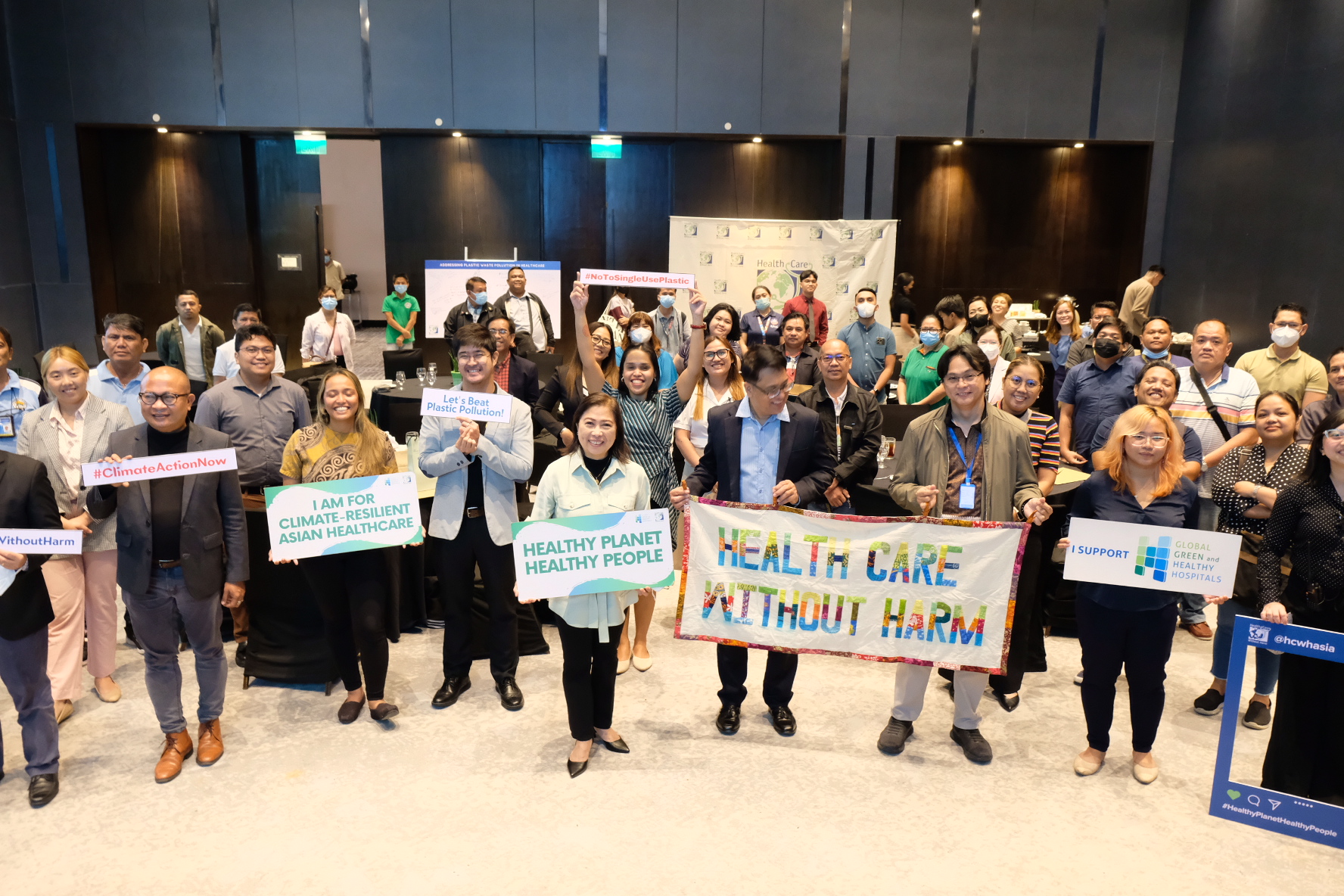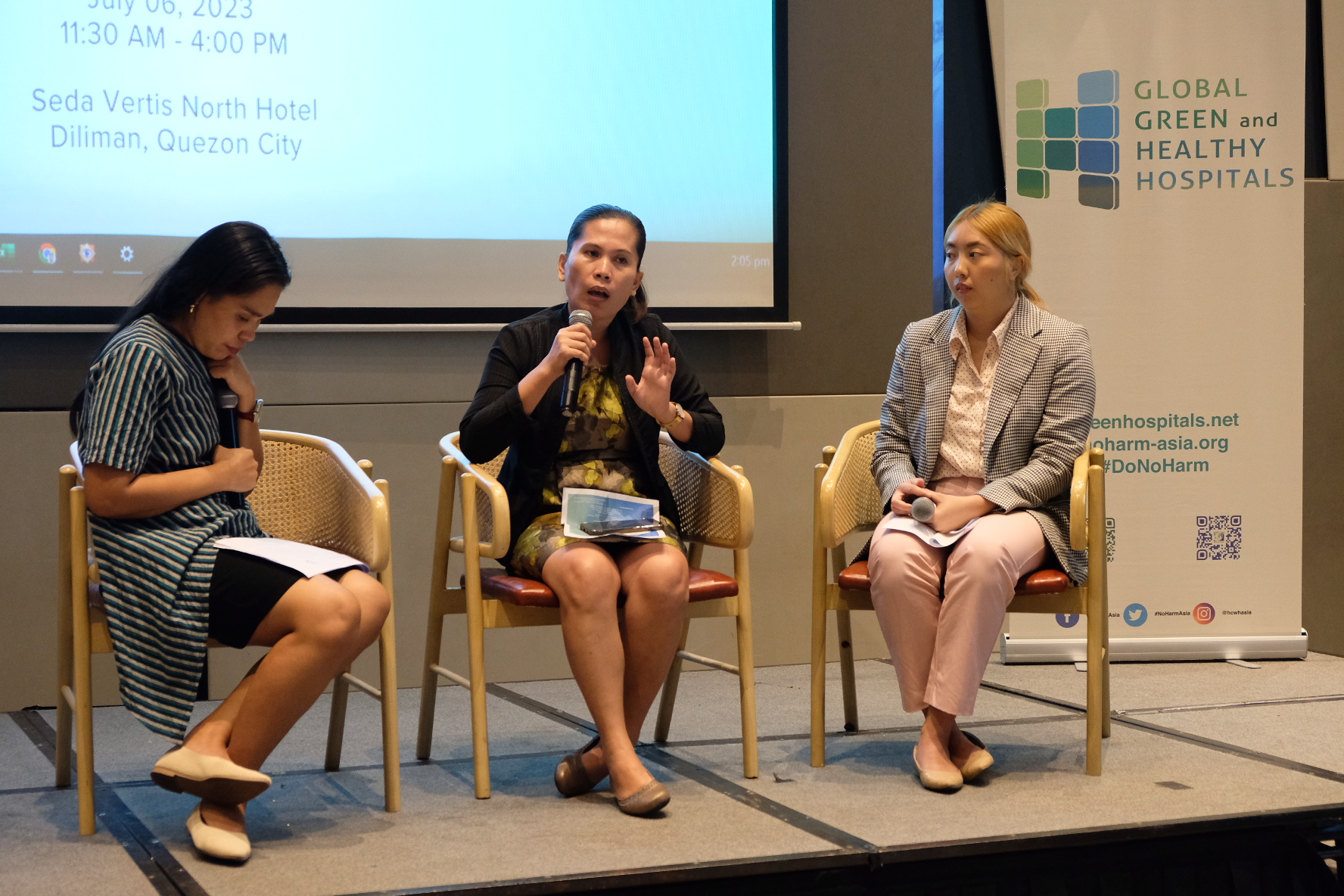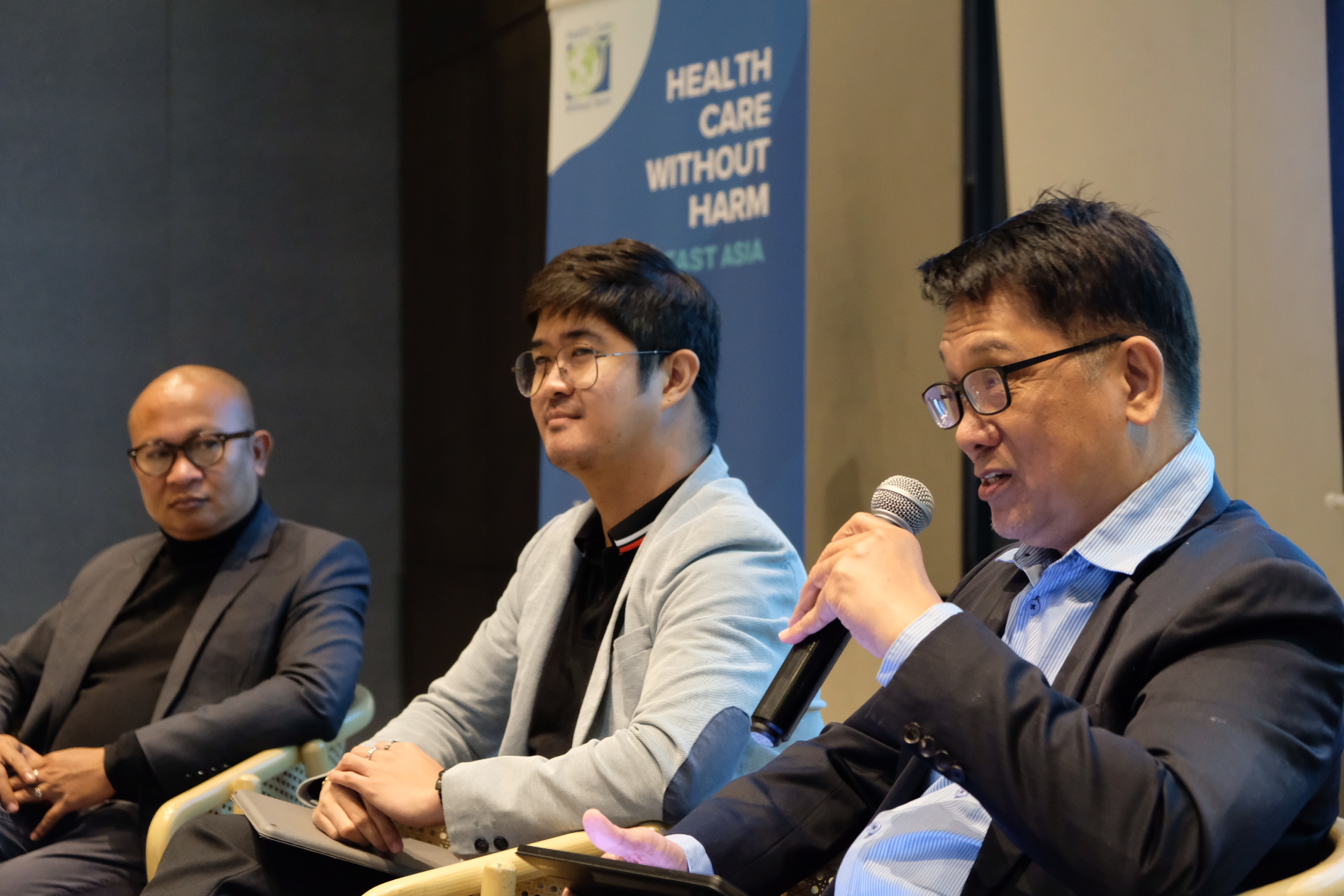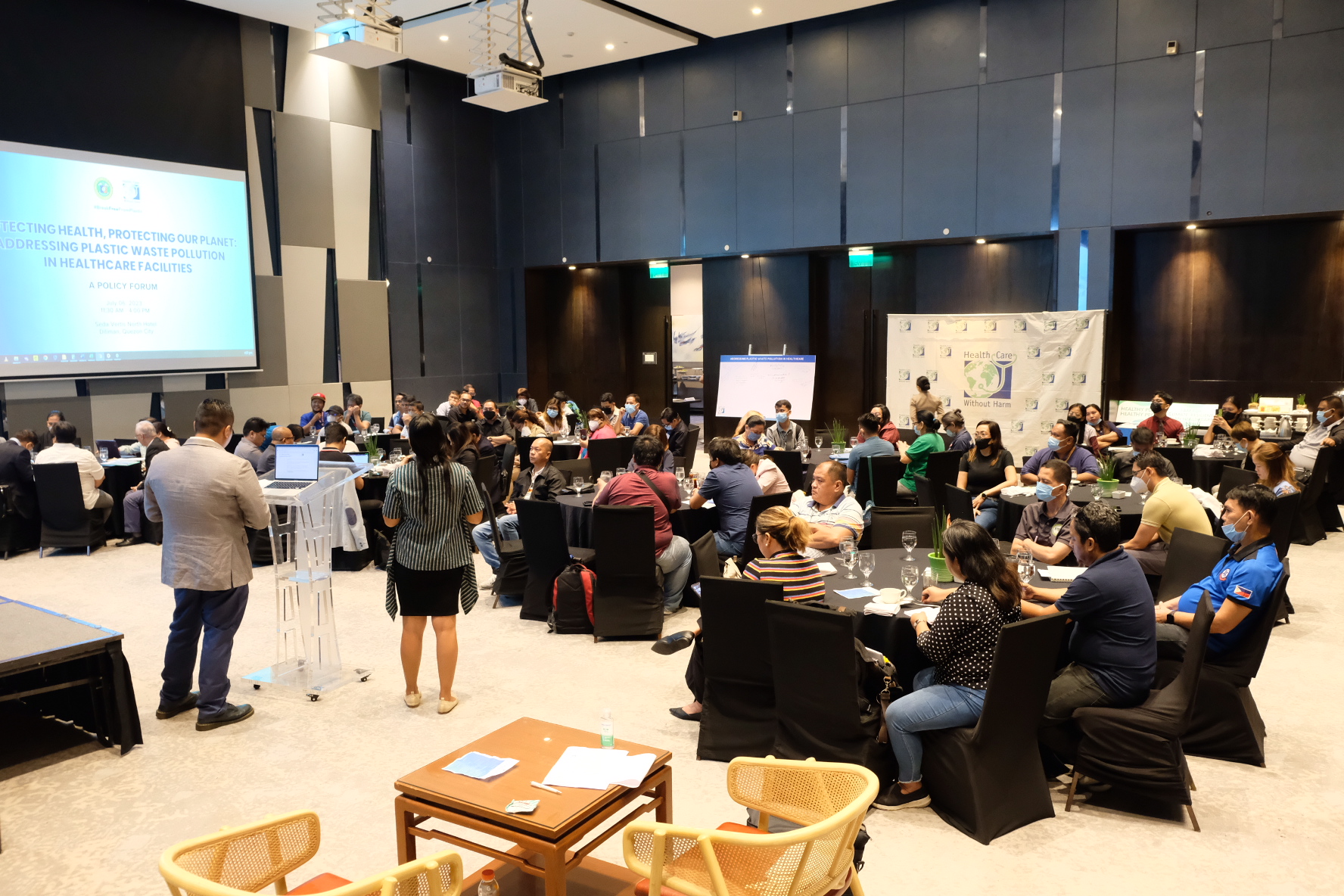Policy Forum on Sustainability: Addressing Medical Plastic Waste Pollution in Healthcare Facilities

The Earth is undergoing rapid warming, and scientists warned us about the catastrophic effects of climate change should we fail to act promptly. Among the top causes of climate change is plastic waste pollution. Plastics come from fossil fuels, the most significant contributor to climate change globally. Fossil fuels account for approximately 90 percent of all carbon dioxide emissions and more than 75 percent of global greenhouse gas emissions.
Annually, the Philippines contributes 2.15 million tons to the global burden of plastic waste. The COVID-19 pandemic exacerbated this issue because disposable face masks and face shields made their way to the ocean. In contrast, a previous study spotlighted a far graver issue. This study revealed an alarming excess of mismanaged plastic waste (MMPW) totaling 8.4 ± 1.4 million tons as of August 23, 2021; notably, more than 87 percent of this excess waste comes from the hospital.
Arising to this global challenge of plastic waste negatively impacting planetary health, Health Care Without Harm Southeast Asia (HCWH-SEA), the Department of Health's Metro Manila Center for Health Development (DOH-MMCHD), and the #BreakFreeFromPlastic movement organized a policy forum on July 6, 2023. Themed ‘Preserving Health, Safeguarding Our Planet: Confronting Plastic Waste Pollution in Healthcare Facilities,’ the event brought together professionals and advocates in health, environment, and public administration, among others, to foster an exchange of ideas and best practices on addressing this pressing issue.

During the event, sustainability practitioners in health shared success stories of waste reduction, system development, and policy implementation. For instance, St. Paul’s Hospital of Iloilo (SPHI) emerged as a beacon of progress, showcasing how management support and collaborative efforts can drive transformative change. From rethinking personal protective equipment (PPE) usage to identifying toxic waste components, SPHI exemplified a holistic approach.
Moreover, as one of the resource persons in the forum, HCWH-SEA Executive Director Ramon San Pascual advocated for a fundamental shift in procurement practices, emphasizing sustainable materials and dialogues with suppliers invested in environmentally conscious solutions. He urged discussions around cafeteria sourcing, advocating for local economies and environmentally sustainable practices. Accordingly, prioritizing reusable and durable products and eliminating non-essential plastic items represents a significant step forward, especially when healthcare professionals actively champion both human health and our planet’s well-being.

The Philippines' healthcare sector historically relied on plastics due to their durability, cost-effectiveness, and accessibility. Amid the government’s growing acknowledgment of the waste crisis, San Pascual underscored the need for heightened awareness regarding healthcare waste's integral place in hospital operations. “There’s a seeming lack of appreciation on [the need] to put the issue of healthcare waste in front of hospital operations. That can only be addressed by constant training and capacity building of people,” San Pascual emphasized during an interview.
In line with the event, HCWH-SEA released a Position Paper on Plastics, WTE, Incineration, and Calls for Action, highlighting the significant impact of plastics on human and planetary health within the healthcare industry. The paper emphasizes the need to address the plastic pollution issue urgently and calls on policymakers to implement measures such as mandatory product labeling, progressive reduction of plastics, and addressing both intentional and unintentional plastics pollution. It underscores the critical role of the health sector in combating plastic pollution, particularly considering the surge in plastic waste during the COVID-19 pandemic and beyond.
“We need to think about what we’re contributing to the community. We need to be a part of the conversation. We need to take action whether it’s in social media, your facility; and we need to work together to beat the plastic pollution,” stressed HCWH-SEA Health Care Waste Sustainability Officer Dr. Michelle Reyes during the event’s panel discussion.
Overall, the objectives of the policy forum were successfully achieved, with participants gaining valuable insights into the implications of plastic waste in healthcare facilities. It served as a platform for dialogue and information exchange, empowering healthcare professionals to implement sustainable practices within their facilities. The event marked a significant milestone in HCWH-SEA's ongoing efforts to promote a sustainable healthcare sector and contribute to a healthier planet with healthier people.

